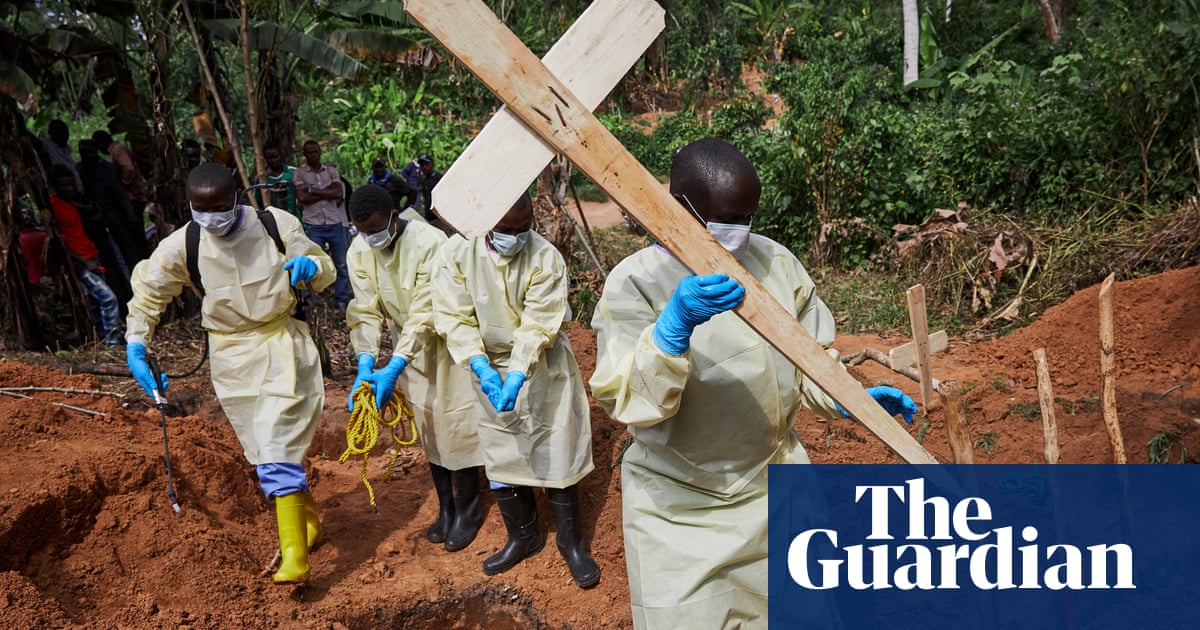The importance of community involvement in tackling Ebola - The Guardian

Your article (Agencies plead for ceasefire as fresh Ebola epidemic spirals out of control in DRC, 15 May) brings home how essential community involvement and participation is in responding to outbreaks such as Ebola in the Democratic Republic of the Congo. When such crises emerge, a trusting relationship between responders and affected community members makes a vital difference to whether the response is effective. As shown in DRC, trust is not a given, which is one of the reasons why community engagement – involving local people in the development of the response from the very start – is so important. In conflict zones this is more difficult than in other emergencies, and yet even more important.
This also holds true when conducting research during an outbreak – an essential part of the emergency response, as shown by the way research in the 2014-16 Ebola outbreak in West Africa led to the vaccine available in the current outbreak in DRC. Social science research is an essential part of any emergency response to understand how the response should best be tailored to local circumstances.
A recent international meeting of survivors’ leaders, community engagement specialists, and medical and social science researchers in Dakar, Senegal – organised by the Nuffield Council on Bioethics, the African Coalition for Epidemic Research, Response and Training, and the Wellcome Centre for Ethics and Humanities at Oxford University – has identified key features of community engagement relating to both response and research, including:
• Effective engagement is a two-way process, where professionals and communities learn from each other in a mutually respectful partnership.
• Approaches must be founded on empathy, human connections, and a recognition of the history and experiences of those affected by the outbreak (for example in DRC, the central importance of the ongoing conflict and people’s daily experience of violence).
• Community engagement must be embedded from the beginning as a core part of response and research activities, with appropriate funding and support. Once relationships are damaged by lack of engagement, this is very hard to repair later.
We call on national governments, research funders, research ethics committees, the media and others to unite in promoting and supporting community engagement for response and research during global health emergencies.
Katharine Wright Nuffield Council on Bioethics
Vicki Marsh KEMRI Wellcome Trust research programme, Kenya
Shelley Lees London School of Hygiene and Tropical Medicine
Mark Marchant London School of Hygiene and Tropical Medicine
Peter Horby University of Oxford
Patrick Seeco Faley Partnership for Research On Ebola Virus in Liberia
Primus Che Chi KEMRI-Wellcome Trust research programme, Kenya
Yusuf Kabba Sierra Leone Association of Ebola Survivors
Morenike Oluwatoyin Folayan Obafemi Awolowo University, Nigeria
Barthalomew Wilson Partnership for Research on Ebola Vaccines and Infectious Diseases in Liberia
Nicole Nkoum Institute for Health Research, Epidemiological Surveillance and Training, Senegal
Elysee Nouvet University of Western Ontario, Canada
Luisa Enria University of Bath
Sharon Abramowitz Consultant
Jamie Bedson Consultant
Nina Gobat University of Oxford
Theresa Jones Anthrologica
Samantha Vanderslott University of Oxford
Sara Dada London School of Hygiene and Tropical Medicine
• Join the debate – email guardian.letters@theguardian.com
• Read more Guardian letters – click here to visit gu.com/letters
• Do you have a photo you’d like to share with Guardian readers? Click here to upload it and we’ll publish the best submissions in the letters spread of our print edition
http://bit.ly/2LZ7Wmf


Comments
Post a Comment